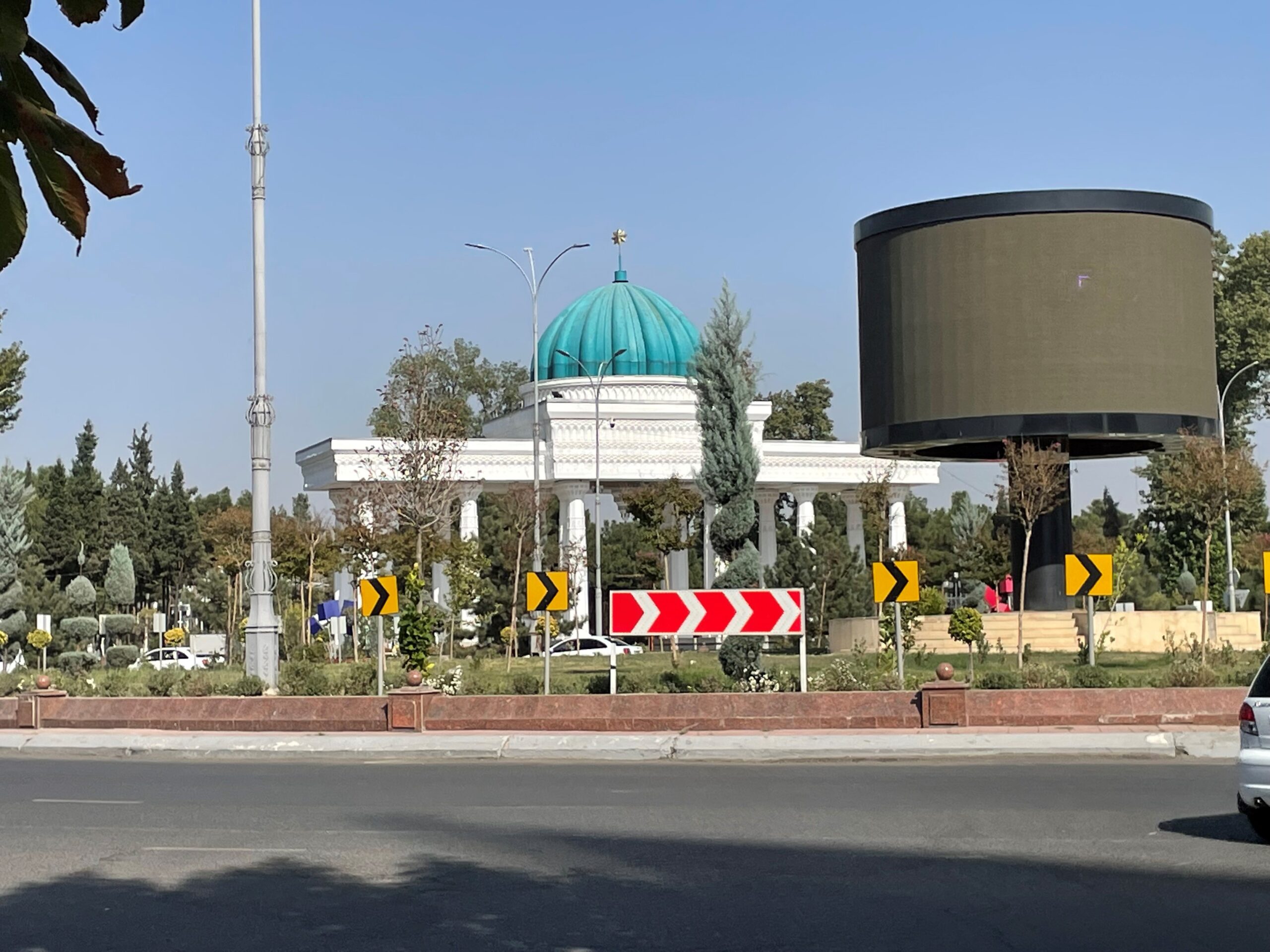Twenty years after the massacre in Andijan, victims and witnesses remain fearful of speaking out about the events that claimed hundreds of civilian lives, as the authorities continue to suppress the truth about the tragedy, the Association for Human Rights in Central Asia (AHRCA), the Norwegian Helsinki Committee (NHC) and International Partnership for Human Rights (IPHR) said in a statement today. The three organisations called on the Uzbekistani authorities to finally facilitate an independent and transparent investigation into the tragic events to ensure accountability and deliver justice to the many victims.
On 13 May 2005, thousands of people gathered in front of the Andijan regional administration building awaiting President Karimov who was rumoured to be visiting the region. The crowd included supporters of 23 Andijan entrepreneurs who were on trial for extremism for their alleged membership of a banned organisation (Akramiya) at the time. Protests erupted in response to social grievances and perceived misconduct by state officials. Law enforcement officials responded to the protests with the use of disproportionate and indiscriminate force, resulting in hundreds of civilian deaths (official figures put the number at 187, but refugees from Andijan estimate the number to be much higher). Thousands were reportedly forced into exile.
The international community unanimously condemned the excessive violence used against protestors in Andijan and called for an international, independent investigation. This was rejected by Tashkent, and in response the European Union imposed sanctions on Uzbekistan, banning 12 officials from entering the EU; imposing an arms embargo; and partially suspending its Partnership and Cooperation Agreement with Uzbekistan. The sanctions remained in place until 2009. The US also condemned the Uzbekistani government’s actions and closed its military base in Khanabad.
In the aftermath of the Andijan events, a large-scale crackdown on civil society followed, during which hundreds of witnesses to the events reportedly were arrested for questioning, and several hundred human rights activists, journalists and opponents were imprisoned on trumped-up charges. The names of civil society activists and political emigrants were reportedly listed by the security services alongside the names of terrorists.
Most of those who fled Uzbekistan after the Andijan events and were arbitrarily stripped of their Uzbekistani citizenship have been unable to regain it, although some have been allowed to visit the country for short periods.
Even years after the 2005 protests, former Andijan residents have been prosecuted and convicted for their participation in the 2005 protests. For example, on 5 January 2023, Kayumov Mukhamadvali was sentenced to over 15 years in prison on such charges. After living in Sweden for 18 years, separated from his wife and children, he returned to Uzbekistan based on assurances from the Uzbekistani embassy in Sweden that it would be safe for him to do so.
When President Mirziyoyev came to power in 2016, he ordered the release of dozens of imprisoned civil society activists, journalists and others, and announced systemic reforms to address past injustices and open up Uzbekistan to the international community. President Mirziyoyev’s early steps ushered in a cautious optimism and earned his regime an improved international image.
However, in recent years Uzbekistan has experienced backsliding on human rights and a shrinking space for freedom of expression and dissent. In this context, witnesses to the Andijan tragedy remain fearful of speaking out. At the same time, despite President Mirziyoyev’s pledges to address past injustices, authorities have yet to bring the perpetrators of the unlawful killings in Andijan to justice and still refuse to verify information about reported mass graves related to the events. They have taken no transparent steps to clarify the circumstances of the 2005 tragedy and have refused calls from the international community to conduct an independent international investigation. Most of the human rights defenders and journalists who were imprisoned for documenting the Andijan events have not been rehabilitated, although released, and there are reports that security officials have threatened them with renewed arrest should they actively pursue this matter.
In another apparent attempt to avoid confronting the past, works are currently being carried out at the site of the Andijan events, with a business centre planned for Bobur square where the violence took place.
We are deeply concerned that the current Uzbekistani administration has failed to address the impunity not only for the 2005 abuses in Andijan, but also for more recent gross violations, in particular those related to the more recent suppression of mass protests in Karakalpakstan in July 2022, when at least 21 people died according to official figures (with unofficial sources estimating the number to be much higher). AHRCA, NHC and IPHR call on the Uzbekistani authorities to take decisive action to thoroughly and impartially investigate these injustices and ensure accountability– a crucial step toward building a society based on the rule of law. The three organisations also call on the international community, including the European Union, to reaffirm their demands for justice – both for the atrocities committed in Andijan and for the more recent deaths in Karakalpakstan.
